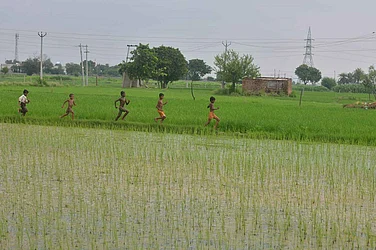Vertical farming is catching up fast, especially among urban farmers. Growers can obtain an increased yield in a smaller area of land. In India too, many farms have since taken to this practice of growing in vertically stacked layers.
Another benefit is that under controlled environment, plant growth is set to optimize. Soilless farming techniques also add to the advantages.
Vertical farming is defined as the practice of growing crops in vertically stacked layers. It often incorporates controlled-environment agriculture, which aims to optimize plant growth, and soilless farming techniques such as hydroponics, aquaponics, and aeroponics.
“Mainly short duration crops such as leafy vegetables, mushrooms, herbs and strawberry can be grown vertically as you can get much higher yield per unit of land with minimum use of resources,” said Rajender Kumar, Business Development Manager, South & East Asia, Cravo Equipment Limited.
“However, it requires high level of investment, high energy consumption and skills to grow crops as compared to conventional farming. Other tall crops like cereals, fruit trees and vine type vegetables are not commercially viable to grow with this type of technology,” stated Kumar.
“There is need to do more research as per our needs in this country,” he added.
Vertical farming can be done inside buildings, shipping containers, and even tunnels.
Thus, organisers of Vertical Farming World Congress – to be held on-line between September 20-22 – may assume that the sector will find strength in adversity. Perhaps this method can offer food security in a world hit by climate change and COVID-19.
“Up to now, pioneering companies have been concentrating on quality, systems and efficiency. This year has seen two fundamental changes. One is an acceleration in funding for geographic expansion. The other is a widening realisation that existing complex supply chains are at underlying risk from multiple forces, such as climate change, COVID and Brexit,” says Richard Hall, Chairman of specialist independent food and drink consultancy Zenith Global.
Following the success of the inaugural 2020 event, attended by 180 delegates from 40 countries, Zenith Global will now host the 2nd Vertical Farming World Congress.
“Every country is now worried about food security because they have to import huge quantities of food grains, fruits, vegetables, spices and herbs from other countries. There may be disruption of food supplies in case of pandemic or wars. So, every nation is targeting to have minimum dependency upon imports,” explained Rajender Kumar.
“Singapore used to import almost 100% of its food. Similarly, Japan – and most of middle east countries – import more than 90% of their food items,” he added.
“India doesn’t face immediate threat to its food security, but increasing population, growing urbanization, diminishing farm lands and demand for locally grown food may create demand for capital intensive vertical farms in and around major metro cities,” he opined, adding, “Therefore, there is scope of vertical farming in Delhi, Mumbai, Kolkata, Chennai, Hyderabad and Bangalore.”
About the Congress, Richard Hall added that the event is designed to “digest all this (challenge and requirement)”, and help businesses chart the way forward. “Our theme of ‘raising expectations’ is to ensure we reflect the new horizons of opportunity. To date, vertical farming has become increasingly established for leafy greens and microgreens. The future will focus on four dimensions – profitability and diversification to spread accessibility and affordability,” he concluded.
The Congress programme includes many of the industry leaders at the forefront of recent acquisition, funding, and expansion announcements such as AeroFarms, Bowery, CubicFarm, IGS, Infarm, Kalera, Plenty, Vertical Future, YesHealth and 80 Acres.
Other speakers range from technology developers at NASA and retailers like IKEA to pioneers from Chile, India, Japan, and Malaysia.
The event also features the 2021 Vertical Farming World Awards, an introductory workshop on planning an urban farming business, virtual farm visits and numerous social networking opportunities.
It concludes with policy discussions involving all the industry’s representative associations from Africa, Japan and the United Kingdom as well as the Association for Vertical Farming and FarmTech Society.












.jpg?auto=format%2Ccompress&fit=max&format=webp&w=376&dpr=2.0)













